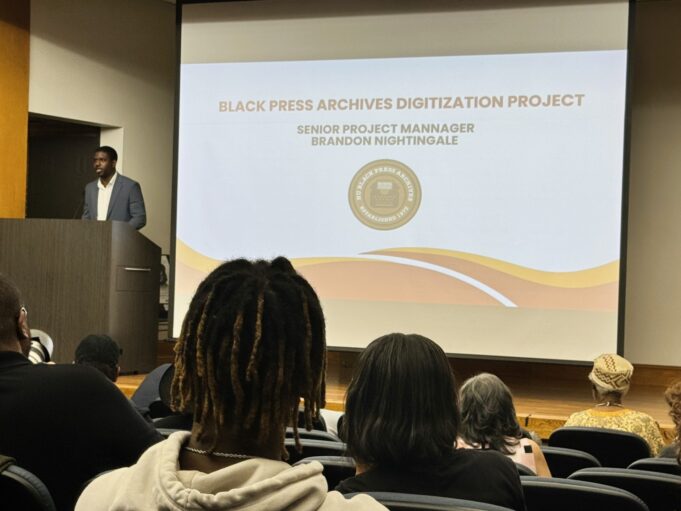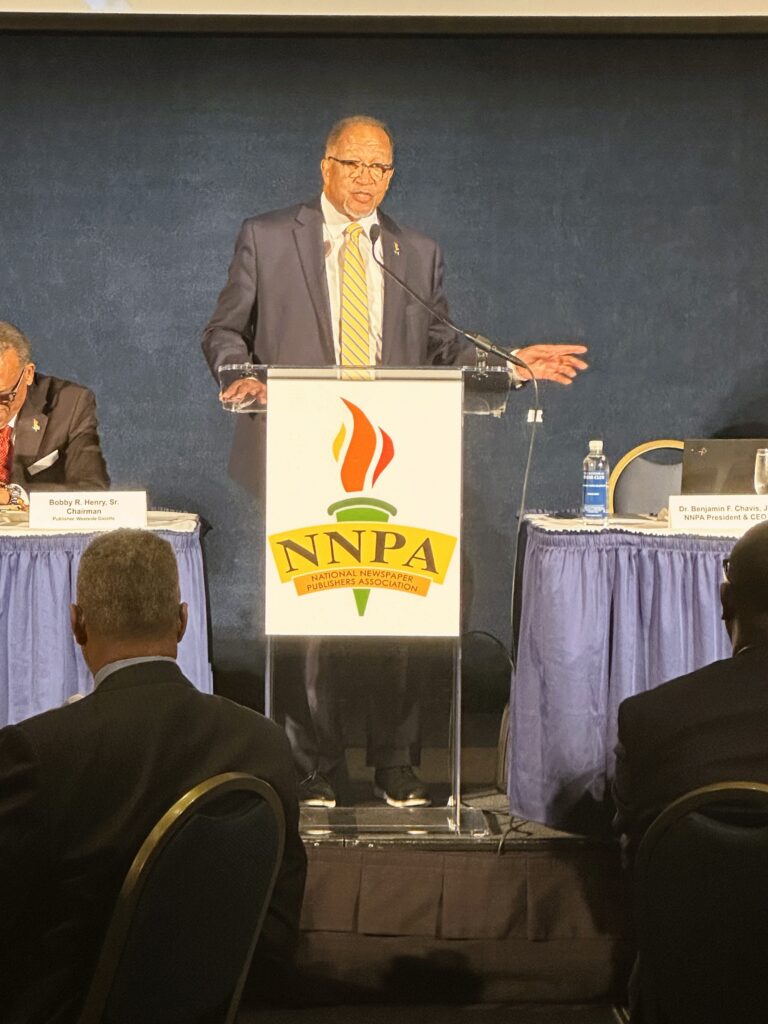WASHINGTON, D.C.—The year is 1827 and U.S. inventor Joseph Dixon of Salem, Massachusetts, begins manufacturing lead pencils. It’s also the year slavery is abolished in New York and the first U.S. newspaper, “Freedom’s Journal” owned and operated by Black people began publishing in New York City.
It was the brainchild of Jamaican-born John Brown Russwurm, Bowdoin College’s first Black graduate and co-founder Samuel Eli Cornish, a graduate of the Free African School in Philadelphia, Pennsylvania.
“We wish to plead our own cause,” the editors wrote in the first edition. “Too long have others spoken for us. Too long has the public been deceived by misrepresentations, in things which concern us dearly.”
That was 197 years ago and today’s Black newspapers publishers, members of the National Newspapers Publishers of America (NNPA) celebrated nearly two centuries of publishing with a whirlwind two days of events that included saluting all the distinguished Black Publishers enshrined in the gallery of the Moorland-Spingarn Research Center on the Howard University Campus. They also attended a “State of the Black Press Luncheon: Getting Out the Black Vote.”
“What is our cause today as we face another existential threat to our presence and existence in America and throughout the African world?” asked Dr. Benjamin Chavis, NNPA President and CEO at the State of the Black Press Luncheon.
“What is our cause today in the upcoming national elections here in the United States? What is our call today in the face of those in power who are taking every legislative and judicial step to distort and even to deny our history, purpose, and mission? What is our cause today?
The state of the Black press today has to answer that question and the demand for historic and contemporary reaffirmation of our purpose in terms of what we are doing, what we are damned to say, and what we have encouraged to publish every second, every hour, every day, every week and every year. Our cause is to publish and speak truth to power,” he continued.
“Our cause is to wake our people up and to keep our families and communities awakened to the truth and to our collective responsibilities and obligations to continue to fight for freedom, justice, equality and equity.
Today there is a very backward governor down in Florida who does not want people to be woke or awakened, but we will not adhere nor allow others to plead for us because we’re gonna plead our own cause and we will not allow people just to turn America backwards … we will not bow down to the reappearance of the flags of the confederacy or the flags of Nazism, racism or anti-Semitism or to any person or energy that denies the humanity of all.”
That speech received a standing ovation and the Black publishers recommitted to plead their own cause. Prior to Dr. Chavis, Congressman James Clyburn, (D-SC) reminded the audience about the importance of their vote. “Throughout our history, the Black press has been there every step of the way documenting the story of America from the perspective of Black Americans.
Black journalism gave voice to the silences and told stories; others deemed insignificant. You helped organized movements that led to the abolition of slavery, the ending of Jim Crow, the election of the first Black president, and the saving of our democracy in 2020.”
“And in 2024, the role of the Black press will be even more important than ever in convincing Black voters of the power of one vote in a digital age where disinformation spreads rapidly on social media, where many politicians lie with impunity and where technological advancements like artificial intelligence, make it difficult to discern the truth. It is incumbent on Black journalism to communicate real stories about real people and do so truthfully irrespective of favor.”
He told the audience about the power of one vote. He explained how Reconstruction came down to one vote, 185 for and 184 against. “Jim Crow became the law of the land by one vote, eight to seven. We must ask the Black community, are you going to be that one vote that brings it in to what everybody has been traditionally calling the second reconstruction?
However, if we want to galvanize the Black community this election year, we must make them aware of the possible consequences, and that means communicating authentic stories about what has happened, what is happening, and what is likely to happen. I often ask people if they want to make a headline or headway. If we want to keep our democracy, we must make headway in informing the American people.”
The two-day NNPA events started March 14, at Howard University with a program updating the publishers on the Black Press Archives housed in the renowned Moreland Spingarn Research Center (MRC).
“Since its establishment in 1973, the Black Press Archives continues to be a major resource of study of the development of Black trust and significance in the local and national communities,” said Moreland Spingarn Research Center Scholar Michael Bryant.
“I can personally attest as a student researcher with a topic that revolved around a lot of Black religious expressions. I was able to connect with publications such as the Christian Report, one of the rare publications prior to the Civil War, as well as The Final Call an off shoot of the Nation of Islam’s original publication Muhammad Speaks.”














